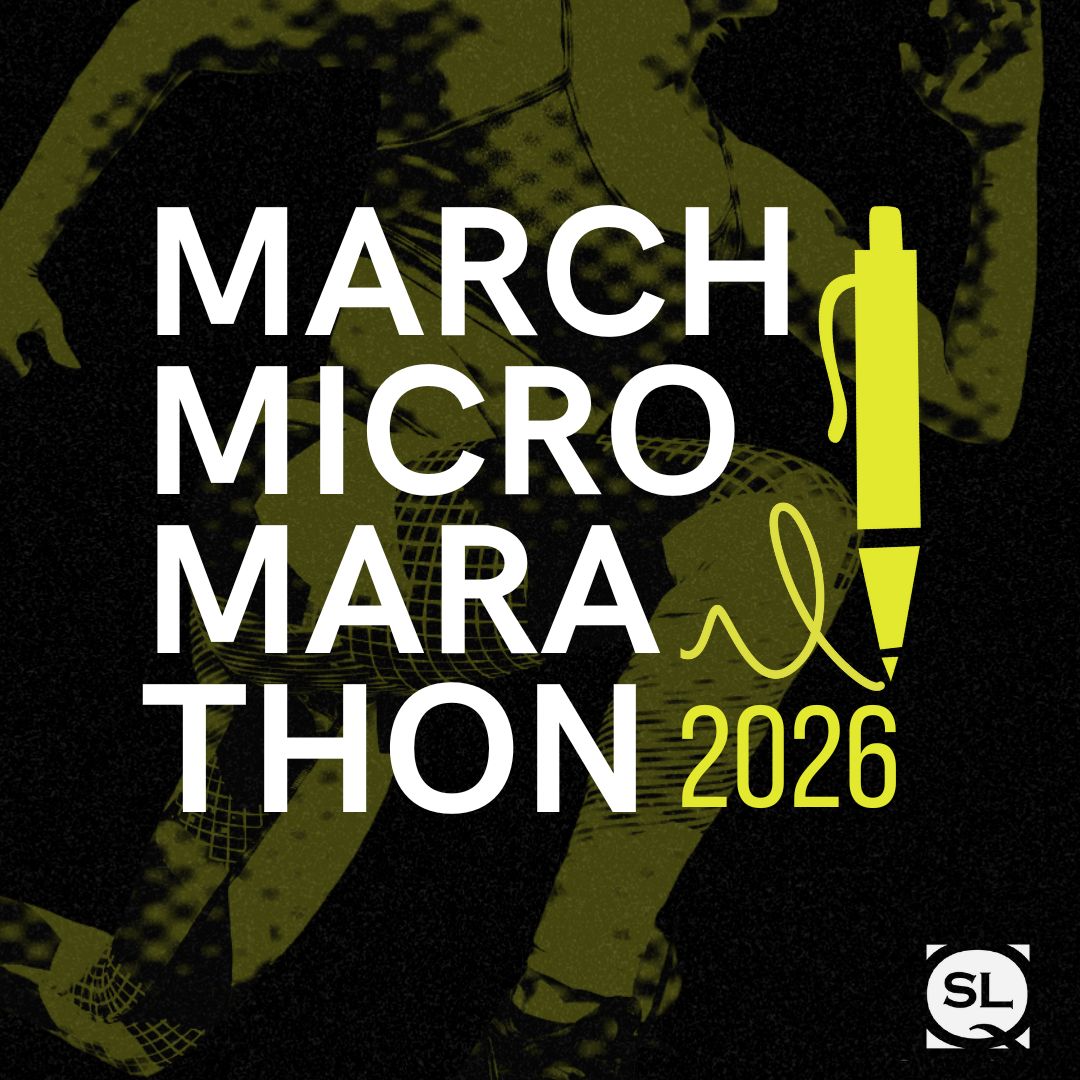I’m saddened and delighted by the sisters’ ambition to find activities for themselves during their mom’s workday. What are the best activities for kids you came across in your research?
Honestly, I didn’t do any research for this story other than looking up different kinds of countertop sprays (I personally use Bath and Kitchen spray—ten out of ten would recommend!). From the beginning, I had only one activity in mind, the cup-phone activity, and I used that as an anchor for the story. A little off topic, but I also realized I could use the cup phones as an “amplifier” to experiment with the acoustics of the story. If you’ve ever tried talking to someone through a cup phone, you know how the words get distorted, how language gets muffled and broken. The kids themselves are also important to the acoustics and voice of the story; how kids can talk in that sugar-high rambling sort of way. Hence, the story is only four sentences.
The sisters’ impression of their mother seems to result from something the dad said. Is this where they learned the word?
Maybe. For me, when writing a flash fiction, or any kind of fiction, I want the reader to be able to draw their own conclusions about what’s going on in the story. I don’t want my characters to outright state, “My sister and I learned X and Y from our father,” I don’t want to write, “I, Sanora, and my Sis, Latoya, don’t like this other woman. She seems mean. She stepped on our cup phones. What a B-I-T-C-H.” The reader can make their own assumptions based on the details of the story. So: yes, no, maybe.
The story might predate cell phones. Should kids be kept away from computers? Who broke the A and O keys? Who stuck the caps lock button?
Yes, the story might predate cell phones. Or this family can only afford one home phone. Again: It’s up to the reader to decide. I should probably mention here that, in flash fiction, space is very limited. I have a thousand words or less and I want to make them count. In order to answer those other questions in the story, I would have to write backstory, information, exposition, opinions, all of which aren’t essential to the story at hand. My friend and teacher, Peter Markus, once said, “Information is the death of the story.” I couldn’t agree more. In summary, I don’t know the answer to any of these questions, especially whether or not kids should be kept away from computers. I’m twenty-one and have no idea what I’m doing in regard to kids. Besides, having an opinion isn’t my job. I’m just the writer.
What mess is the mom cleaning up before work?
I’m not sure (I say that a lot). It could be that she’s OCD and always has to be cleaning every D-A-M-N thing in the house. It could also be that she’s cleaning up after Sanora and Latoya. Maybe she uses cleaning as a distraction from her husband who’s never around. From a writer’s standpoint, I use the mother’s cleaning as characterization through action. Just as real-life people have obsessions, characters should have them as well. For the mother, her obsession is cleaning.



 In its third year, The March Micro Marathon will be, as usual, a prompt-a-day whirlwind for 24 days. You’ll exchange drafts of micro fiction, non-fiction, and prose poetry in small groups and gather for a series of online events (all recorded for participants unable to attend live). We’ll finish with 3 competitions, and participants who are not already in SmokeLong Fitness will be invited to workshop with SmokeLong Fitness until the end of April!
In its third year, The March Micro Marathon will be, as usual, a prompt-a-day whirlwind for 24 days. You’ll exchange drafts of micro fiction, non-fiction, and prose poetry in small groups and gather for a series of online events (all recorded for participants unable to attend live). We’ll finish with 3 competitions, and participants who are not already in SmokeLong Fitness will be invited to workshop with SmokeLong Fitness until the end of April!